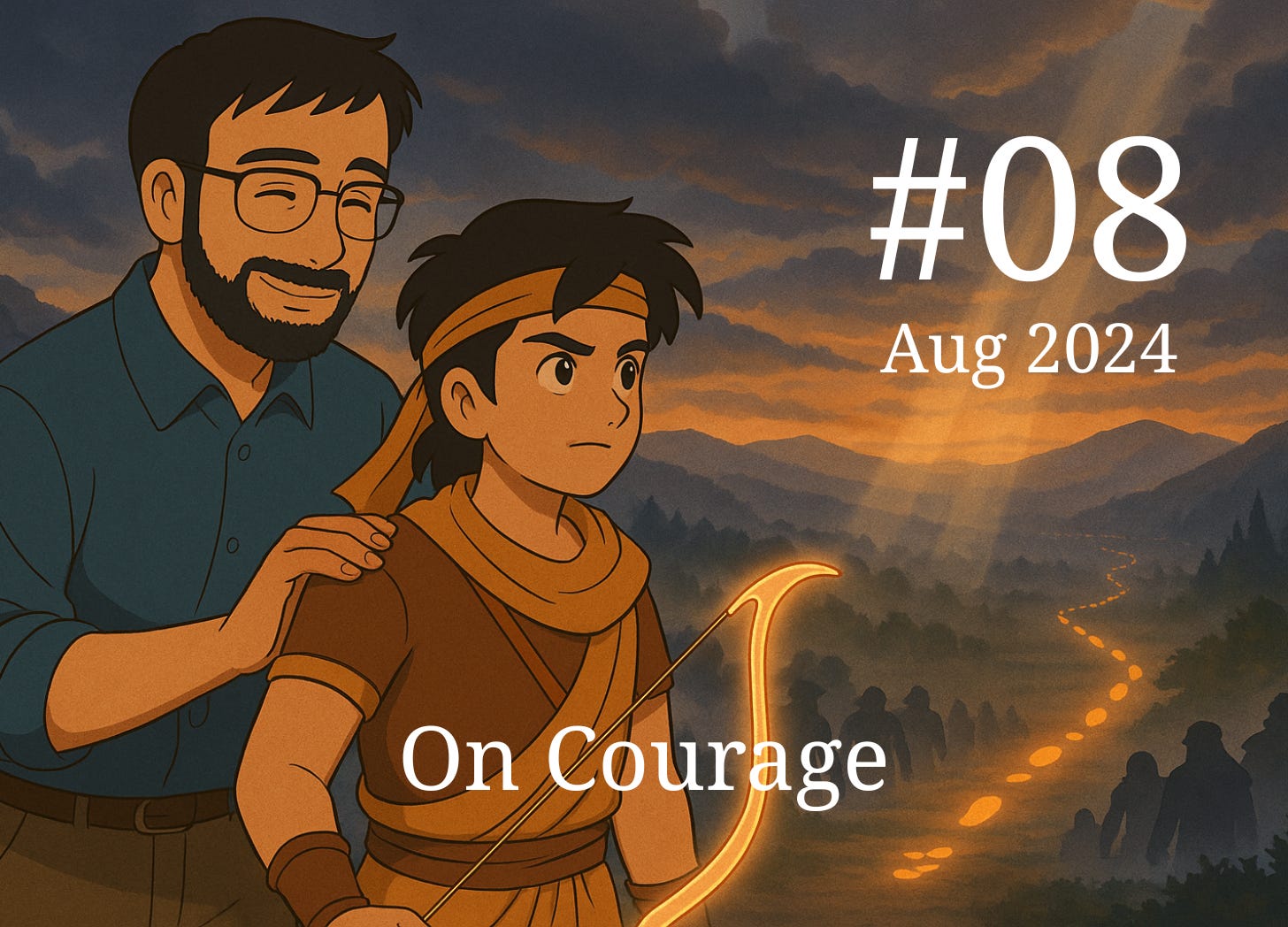[Aug 2024] कर्तव्येन कर्ताभि रक्षयते
In Hindi it means "कर्तव्य ही कर्ता की रक्षा करता है"। In English it means our righteous conduct protects us so we should always do what is right - without any fear
Hey Champ!,
Imagine a world where everyone knows that lying is a sin and speaking the truth is the right thing to do. Now imagine, if truth-seekers are punished because people who speak the truth threaten the existence of those who lie. Should the truth-seekers stop telling the truth and join forces with those who are evil and are sinners?
The answer is obviously ‘No’, but in reality that is exactly what most of us tend to do. Why? Simply because something or the other scares them and their fear takes over letting them turn a blind eye to those who commit sinful acts.
Our scriptures (Bhagavad Gita, for example) tell us otherwise.
It teaches us not to be afraid and simply follow our ‘dharma’ - which is essentially a set of rules that determine whether our conduct is moral or immoral. It tells us that if we ensure that ‘dharma’ prevails and is protected by us within ourselves or within the people around us, our ‘dharma’ will also protect us. I don’t think that the protection it is talking about - happens through some magic, but I believe that we are always stronger when we do the right thing, because more people start believing in us when they observe our conduct. When people start following you and trusting you, you also become better and stronger - allowing you to do more good in life and to people, in general. And so, the cycle continues till you become so strong that nothing evil or bad can ever touch you.
There are 2 stories from our scriptures that reflect this principle of evil conduct destroying us and rightful conduct protecting us:
King Sahastrarjuna was a great ruler. Once, he visited the hermitage of Sage Jamadagni, where the sage gave him a grand welcome. King Sahastrarjuna noticed that the reason for the sage’s hospitality was his Kamadhenu cow, so he decided to forcibly take the cow to his kingdom. When Lord Parashurama heard about this, he became very angry and killed King Sahastrarjuna and his army. Sahastrarjuna had forgotten his duty and, being blinded by attachment, committed an unrighteous act, which led to his downfall.
During the Kurukshetra war, Arjuna was troubled by the thought of fighting his own relatives and told Lord Krishna that it would be better to live by begging than to engage in such a battle. Lord Krishna reminded him that as a Kshatriya, it was his duty to fight. He urged Arjuna to pick up his Gandiva bow and fight. Arjuna realized his duty and prepared for battle, ultimately achieving victory. It is one’s duty that defines a Kshatriya. If one does not have the proper understanding of duty, anyone can mislead a Kshatriya by saying that fighting is violence and should be abandoned. Without knowledge of his duty, a Kshatriya might do so and, straying from his duty, meet his demise because he would not understand in which circumstances violence is righteous and in which it is unrighteous.


